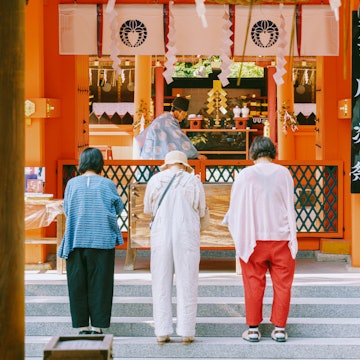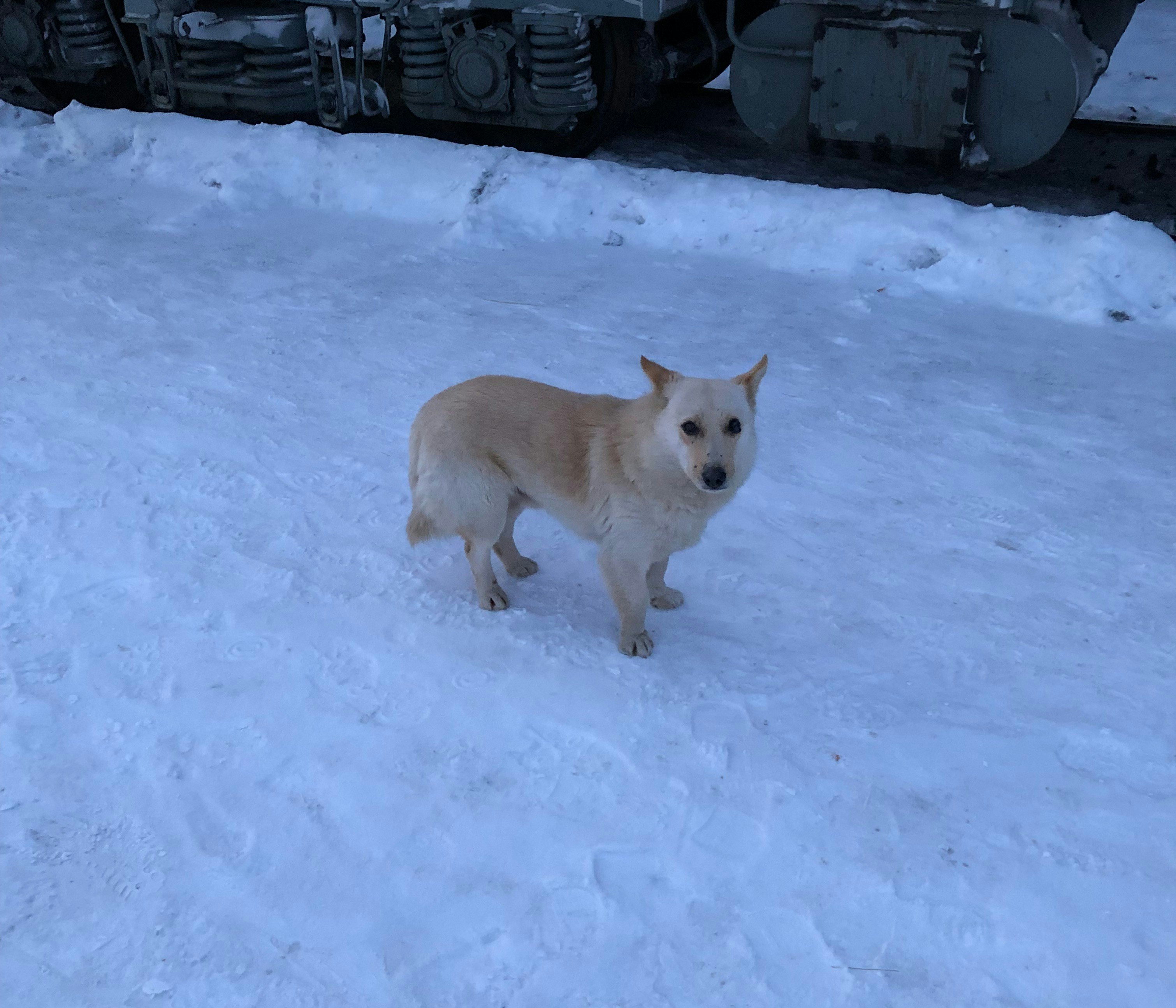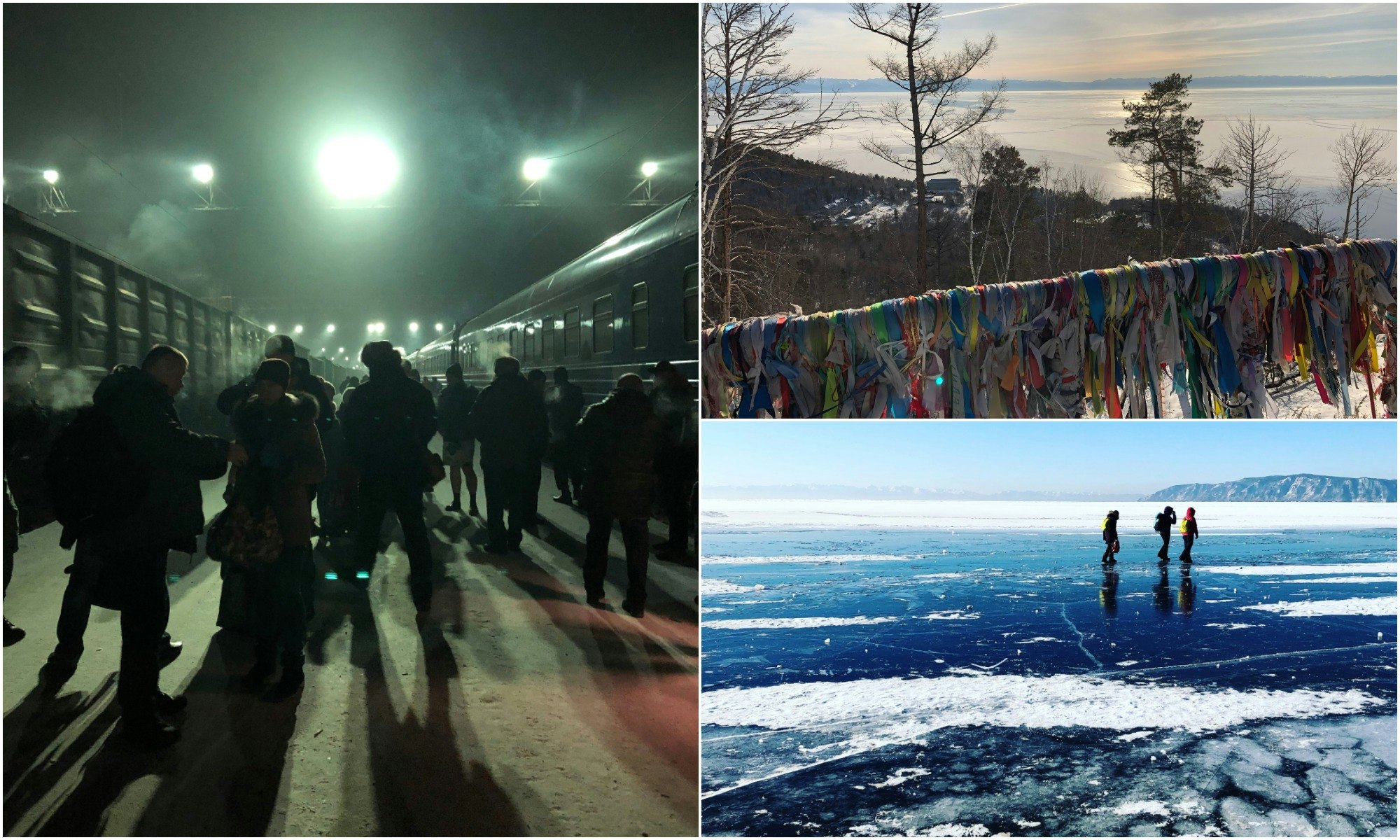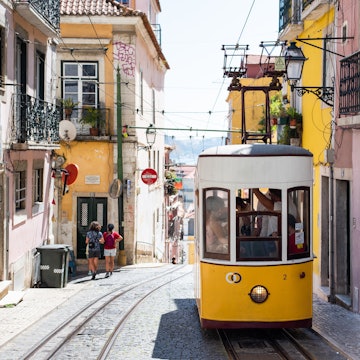
Female Solo Travel: taking the Trans-Siberian railway alone
Sep 23, 2019 • 7 min read

A Trans-Siberian train awaits departure from an icy station © Dominik Staszowski / Getty Images
'Are you married?' Sergey, the middle-aged man in the bunk below mine on a train from Moscow to Vladivostok, asked me in Russian. We were somewhere east of the Ural Mountains, about 40 hours and 1700 snowy miles into the six-day journey to the Pacific coast. Sergey was going all the way; I was getting off in southern Siberia to see Lake Baikal, the world’s oldest, deepest lake.

I remained silent, sipping tea from a glass nestled in an old-fashioned silver holder. I was tired of strangers asking about my marital status. I’d heard the question countless times since I first traveled to the former Soviet Union 15 years earlier — from the students I taught as a Peace Corps volunteer in Ukraine, the cabbies who drove me around Moscow in their beat-up Ladas, and the grandmothers selling vegetables near my crumbling Soviet-era apartment building. 'If she were married, her husband would be here,' the man seated across from us, also named Sergey, interjected matter-of-factly. Soon I climbed back to the upper berth and my copy of Crime and Punishment.
Riding a train across Russia alone in January
When I was living in Eastern Europe in my twenties, I didn’t usually mind being asked if I had a husband. 'No, I’m here alone,' I’d say cheerfully in Russian, watching people’s eyes widen at the idea of a young woman on her own in a foreign country. I explained that while Ukrainians and Russians commonly married in their early twenties, most Americans in my circle thought that was too young: 'We do it later, usually around 30.'

Now it was 'later.' I was 36 and single, but wanted a partner. I was freelancing and working part-time while trying to figure out my career goals after a layoff. I was subletting month-to-month in Brooklyn but thinking of moving back to California to be closer to my parents. And now I was riding a train across Russia alone in January, hoping the journey would help bring clarity about what to do next. I’d taken the same route a decade earlier, only traveling in the opposite direction. Maybe by retracing my path, I could channel the adventurous spirit that had defined my twenties, and which I worried was starting to elude me.
Like this? Try this: 10 of the world's most amazing train journeys
My first Trans-Siberian train trip was with a guy I’ll call Jon. At the time I lived in Moscow and he was in the USA. We’d seen each other for a few months before I moved to Russia but never defined our relationship. Still, after I left, he agreed to be my date to my brother’s wedding in Japan and travel back to Moscow with me afterwards. I figured that had to mean something.

We met in Osaka for the ceremony, then took a boat to Korea, a plane to Mongolia and a train to the Russian border. There we hitched a ride in a van with a group of Mongolian denim importers, who asked us to hide rolled-up pairs of jeans under our shirts to help them skirt the customs rules. An awkward distance hung between us through these adventures. A few days into the trip, Jon told me he wanted to keep things platonic. I sobbed at the side of a dusty road in Ulaanbaatar, wondering why he would fly across the world to see me if he didn’t want to be together.

A few days later we boarded the Trans-Siberian in Ulan-Ude, a city east of Lake Baikal that’s home to a 25ft-tall monument of Lenin’s head. We spent most of the 88-hour trip reading and talking to the other passengers who shared our cramped four-bunk sleeping compartment. Translating for Jon kept me busy. When the conversation lulled, I filled pages in my journal, wondering what he was thinking. We arrived in Moscow on my 26th birthday and snapped a triumphant selfie. My smile masked an inner dissonance. It was the trip of a lifetime, full of experiences I’m glad we shared, but I still can’t think of it without remembering how rejected I felt.

When I was younger, I expected to meet another former Peace Corps volunteer like Jon, fall in love and get married by my early thirties. We’d probably live abroad for a while. I’d have a job doing something interesting and good for the world. Eventually maybe we’d have kids. The details were fuzzy in my mind. I’ve never been great at envisioning where I want to be in five or ten years, and I liked the idea of someone helping me figure it out. I thought my true desires would come into focus once I found a partner, the picture circumscribed — happily, I imagined — by the compromises of building a life with someone else.
Being in a state of transition
Now my options seemed endless, like the icy landscape outside the train window. I could make all my big decisions without consulting anyone. I needed to make money, but I didn’t have to support anyone but myself. I could live wherever I wanted, as long as I could pay the rent. I knew it was a privilege to have these choices, but sometimes it felt paralyzing. I hadn’t expected to have this many years to myself — what was I going to do with them?
Find out how to travel from Moscow to Norway through Arctic Russia

Rolling slowly across five time zones, I could embrace being in a state of transition. I had no job other than to experience the journey. I watched the afternoon sunsets paint a peachy streak above the snow and let the train’s vibrations rock me to sleep at night. Except for the two Sergeys’ dueling snores — our matronly train car attendant, Irina, dubbed them 'the Turetsky Choir' after a popular Russian male vocal group — it was a quieter trip than the one I’d taken with Jon. I chatted with some other passengers, but mostly I read, napped and people-watched.
Lake Baikal is pretty boring this time of year
Every few hours the train stopped and I slipped my sandals over my wool tights to venture onto the platform, where some of the Russians smoked cigarettes in shorts. There wasn’t much to see during these brief breaks, beyond a few stray dogs and a handful of kiosks that sold snacks and crossword puzzles. My first Trans-Siberian trip had been in late spring, and the winter version was considerably bleaker. 'Lake Baikal is pretty boring this time of year,' Irina warned. In February and March, you can drive a car across its frozen surface, but I was visiting in mid-January, when it wouldn’t even be solid enough to ice skate.

After three days on the train, I bid the Sergeys farewell before dawn in Irkutsk. It was cold enough to see my breath. Families reunited around me, clad in fur hats and thick coats. I looked for the bus stop in the dark, realizing I was alone, 6000 miles from home, and used to it. Though I knew it was trite, when I planned the trip, I hoped traveling would help me figure out who I was and what I wanted to do next. What I should do next, I often thought, was as if life were a multiple-choice exam I could pass or fail. In reality, the train ride didn’t give me the concrete answers I craved. But it did provide a sense of forward momentum. Despite feeling stuck, I’d gotten the idea to go to Siberia in winter and actually done it, embracing my freedom instead of fretting about wasting it.

A thrill washed over me when I spotted the lake through the window of a lurching passenger van a few hours later. I got out and marveled at its glittering expanse, the cold air fresh on my face. Irina was right: there really wasn’t much to do. Signs reading 'STOP! DANGER!' dotted the lake’s icy perimeter, so I risked only a few tentative steps around the edges. I didn’t mind. I had been here before, but this time I had nobody to please but myself.
Check out adventure tours for every traveler from our trusted partners.













